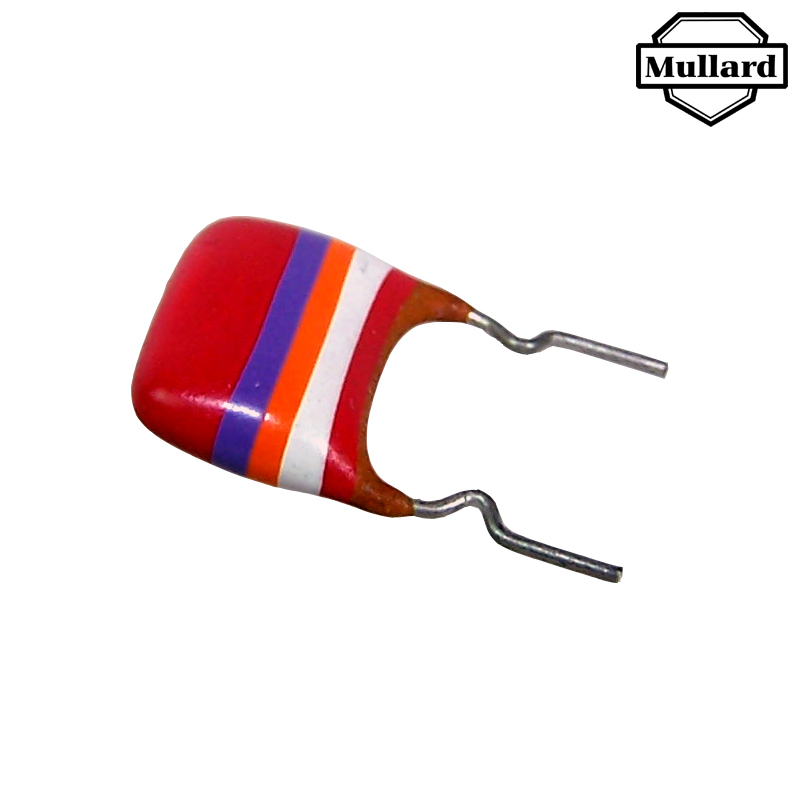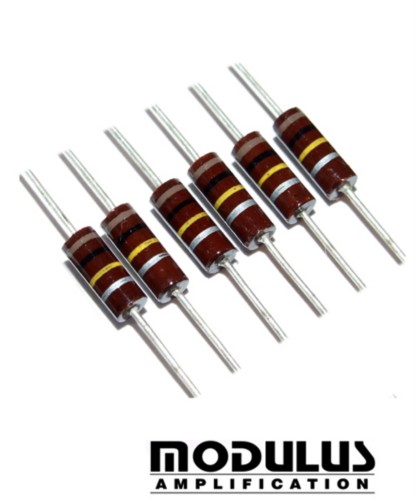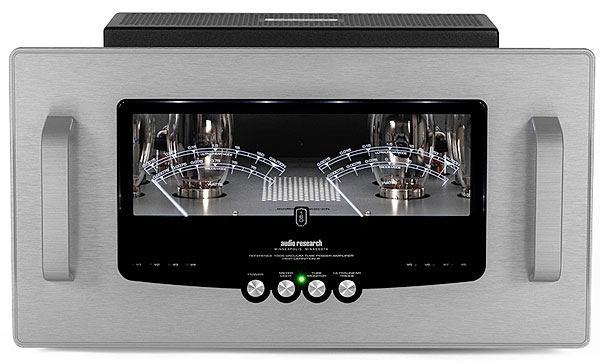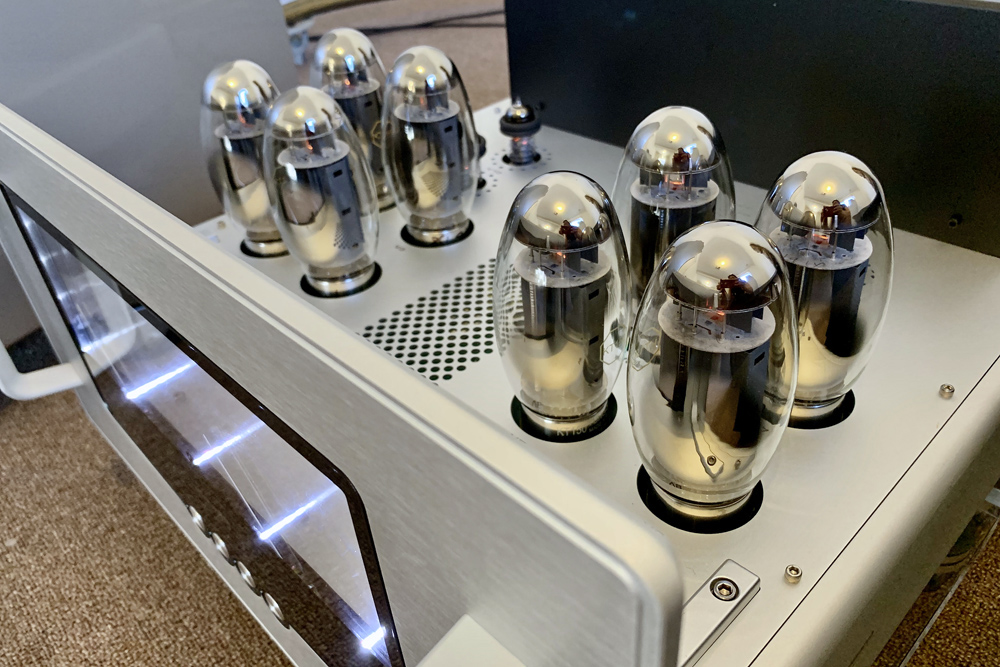Progarchives.com has always (since 2002) relied on banners ads to cover web hosting fees and all.
Please consider supporting us by giving monthly PayPal donations and help keep PA fast-loading and ad-free forever.
/PAlogo_v2.gif) |
Which headphone amp? |
Post Reply 
|
Page <12345 6> |
| Author | ||
Mascodagama 
Collaborator 

Honorary Collaborator Joined: December 30 2006 Location: United Kingdom Status: Offline Points: 5111 |
 Post Options Post Options
 Thanks(0) Thanks(0)
 Quote Quote  Reply Reply
 Posted: May 24 2020 at 04:49 Posted: May 24 2020 at 04:49 |
|
|
||
|
Soldato of the Pan Head Mafia. We'll make you an offer you can't listen to.
Bandcamp Profile |
||
 |
||
Catcher10 
Forum Senior Member 

VIP Member Joined: December 23 2009 Location: Emerald City Status: Offline Points: 17494 |
 Post Options Post Options
 Thanks(0) Thanks(0)
 Quote Quote  Reply Reply
 Posted: May 24 2020 at 09:44 Posted: May 24 2020 at 09:44 |
|
Well that can be difficult for most unless you live in a large city like NYC or Los Angeles, as Hi-Fi brick and mortar stores don't exist anymore everywhere. You can't just walk in and audition gear like we used to back in the golden age of audio gear super stores. Today most online audio retailers like Music Direct and Hi-Fi Heaven offer 30-60 day full return policy, so that is a good way to go also. I have used that offering in the past....but today your best process to follow is reading online reviews and actual user reviews and comments to get an idea if you might like something before hearing it.
|
||
  
|
||
 |
||
Davesax1965 
Forum Senior Member 
Joined: May 23 2013 Location: UK Status: Offline Points: 2826 |
 Post Options Post Options
 Thanks(0) Thanks(0)
 Quote Quote  Reply Reply
 Posted: May 28 2020 at 09:27 Posted: May 28 2020 at 09:27 |
|
|
Unfortunately true.
However. There is absolutely zero way you will get perfect sound reproduction over the internet. Even if you could, guess what ? You're hearing it through either sh*tbox speakers or a set of headphones which will colour the sound, anyway. So the only option to hear what it sounds like is to hear it live, otherwise you're taking pot luck. Sorry, a very complicated subject made easy. Brutally so. As for frequency response charts. I can mess around with EQs on playback and hear a definite difference, as I've been mixing music for 20+ years. I have to honestly tell you that most people can't. Most people hear psychological differences. They have an expectation of what it sounds like. The more expensive the kit, the more their experience tends to meet their expectations. The other point I should perhaps make, sorry, audiophiles - you'll never ever ever get perfect sound reproduction. Whether you mike up a saxophone or a guitar, Bulgarian nose flute or a dustbin lid, there will always be a process which colours the sound, anyway. As there's physical gear in the equation with it's own characteristics. Why do you want "perfect sound reproduction" anyway ? It's more important to get a sound you like. Perhaps something has slightly more midrange. Perhaps the bass is a bit wider. Perhaps there seems to be more prescence or 1001 other little factors. Audio gear is subject to enormous, massive hype to sell highly expensive rubbish to people. 99% of it is an absolute utter con, full of pseudoscience and psychobabble. Forget what the neighbours have. Forget what the man on the telly told you. Forget what it says in What Hi Fi Bore. Go in the shop. Listen to the gear in a real world situation. If you like it and can justify the price, buy it. It really is that simple. |
||
|
|
||
 |
||
Guldbamsen 
Special Collaborator 

Retired Admin Joined: January 22 2009 Location: Magic Theatre Status: Offline Points: 23098 |
 Post Options Post Options
 Thanks(0) Thanks(0)
 Quote Quote  Reply Reply
 Posted: May 28 2020 at 09:46 Posted: May 28 2020 at 09:46 |
|
|
I think every newcomer to the world of headphone amps (and dacs for that matter) should take a look at this video before getting too ahead of themselves. They will need a pair of headphones as the video contains binaural recordings
 Oluv’s Gadgets: https://m.youtube.com/watch?v=jin02fUeYFU&t=3s |
||
|
“The Guide says there is an art to flying or rather a knack. The knack lies in learning how to throw yourself at the ground and miss.”
- Douglas Adams |
||
 |
||
Catcher10 
Forum Senior Member 

VIP Member Joined: December 23 2009 Location: Emerald City Status: Offline Points: 17494 |
 Post Options Post Options
 Thanks(0) Thanks(0)
 Quote Quote  Reply Reply
 Posted: May 28 2020 at 10:47 Posted: May 28 2020 at 10:47 |
|
All true, but that is sales and marketing of anything. I've been into audio gear my whole life almost, my father was into gear also. I've had many systems and in general what you are looking for varies based on your tastes, for sure. That's why designers/engineers shoot for different outcomes to appeal to the masses. All gear does not sound the same, and we all know that is dependent on the source you are listening to. "Perfect sound reproduction", I don't buy it! I would describe my desires more looking for "accurate" reproduction, by that if the source is krapp (mixing, mastering, sh*t micing) I should hear it and the reverse is true. I don't want any coloration of the source.....but end of day its my ears that need to be happy!  That's why in home trials are the way to go if possible, I'm lucky here in the Seattle/Tacoma area there are several audio stores to go an listen to gear.
|
||
  
|
||
 |
||
Davesax1965 
Forum Senior Member 
Joined: May 23 2013 Location: UK Status: Offline Points: 2826 |
 Post Options Post Options
 Thanks(1) Thanks(1)
 Quote Quote  Reply Reply
 Posted: May 29 2020 at 03:19 Posted: May 29 2020 at 03:19 |
|
|
Badly mixed and recorded tracks, wooo, different can of worms. ;-)
Well, at the end of the day, in 90% of cases, you're probably listening to something done on a home recording setup now, and not tape and a matched pair of Neumann microphones. So no matter what analogue gear you use to listen to it, you're listening to an analogue playback of a digital recording. ;-) I've got a very good friend over here who makes vintage synth electronics using the original methods found in the 60's and early 70's. He'll take a bare PCB and hand etch it, occasionally I get asked, "Where can I get some Mullard tropical fish capacitors from ? Have you got any new old stock oil in film caps ? " That's a "tropical fish" capacitor below. You can see where the name comes from, you read the value of the capacitor from top to bottom based on the colour code. They are absolutely, completely obsolete and cost 10 times (if not more) as more efficient ceramic disk capacitors, which are also obsolete as well. Using these means you can't really use modern CAD packages to design a PCB, you have to hand draw it, bubble etch it (back to the 70's we go) and then drill it by hand. Also, the caps are highly inefficient for anything with relatively low voltage - they leak. It's the same with most old electronic parts. Old "carbon composition" resistors - the brown things you'd find in old electronic gear - were rumoured to sound better. They don't. Link here. http://carlscustomamps.com/do-carbon-composition-and-carbon-film-resistors-sound-better Some of them are even 20% off in tolerance. Try 1% for standard resistors. With vintage electronics, you have crackly old potentiometers, leaky capacitors and waaaaay out resistors to contend with. That's before you even get to valve gear. People will rob you blind as hi fi buffs / bores simply must have something with carbon comp resistors in, oil in film caps etc etc etc. On a lot of vintage electric guitars, guitar nerds simply MUST have a vintage 22 microfarad carbon film resistor and will pay hundreds of dollars for them. They claim it makes their Gibson sound "darker" or "brighter". Guess what ? The capacitor has utterly no bearing on the sound. You can replace them with anything modern, 10 cents if that. No difference. Hi fi buffs and guitar buffs have a very basic understanding of electronics. There are a few simple mantras. "Old electrolytic capacitors baaaad, replace". Guess what you replace them with ? New electrolytic capacitors. Nothing else will actually contain those levels of charge. (Actually, electolytics don't "leak". They still hold the same amount of charge, the discharge rate just slowly degrades with use. It most usually hardly matters.) Another con is "transistor matched pairs". Back in the old days, if you needed to match a pair of transistors, I won't go into the technical details of why, switching times were so variable due to poor manufacturing tolerances that you had to freeze a transistor for 24 hours, remove it and you got one chance to short two leads, read a value and match it. Mess up, back in the fridge. So your five cent transistor then retailed for $7 due to the amount of work. Modern transistors for audio really don't need matching. The tolerances are so high that two transistors chosen out of a batch will work just fine. It all goes back to ancient rumours, received knowledge (by the in-fact unknowledgeable) and manufacturers exploiting that lack of understanding. Believe it or not, changing component types has very little difference on performance. I've replaced horrible old tantalum capacitors with electrolytic ones, no difference. I've replaced one type of PNP or NPN transistor with another, again, no difference at all. It's more a case of the design of the circuit than the actual components. At these speeds, the component composition makes little or no difference. With any modern amplifier, the sound is a combination of several things, revolving around the characteristics of what are called "op amps" (operational amplifier chips) and the design of the filter. Getting the signal amplification is easy. Basically, take an op amp chip and two resistors. The chip has two connected pins and the ratio of the input resistor to the output resistor determines the amount of gain, and hence volume increase. You don't have to design the amplification stage itself, it's done for you via the microelectronics in the chip. You can use various chips, TL071/72/74's etc, or LM351's / 741's - these cost pennies. There is very, very little difference between them, usually that's down to the response speed of the chip, and - at audio processing rates, the speed has very little impact. You have to "buffer" the chip by adding small capacitors to the input stages, these marginally retain the signal in order to reproduce it without much loss, but.... it's absolutely minor. There are only so many ways of designing an amplifier stage using chips, so really, most amps are the same that way. (Note this is solid state and not valve, but it's a similar process). The same goes for the filter stage. From the amplification stage, the signal goes off to a filter. There are a number of designs out there but really, filters will sound different due to (a) the topology (design) of the filter and (b) the values of some of the components in the filter stages. What you're essentially paying for is a mere handful of inexpensive components which cost less than two dollars, if that. I've changed capacitors in microphones and made them sound utterly different for virtually nothing. Electronics, as I mentioned, is a black box subject ... and in very, very many cases, an utter rip off. Forget specs. Forget frequency response charts. Forget cosmetics. Don't think you have a technical understanding because you've read a review in What Hi Fi ? - go off. Listen to it. Do you like it ? Buy it.  |
||
|
|
||
 |
||
Davesax1965 
Forum Senior Member 
Joined: May 23 2013 Location: UK Status: Offline Points: 2826 |
 Post Options Post Options
 Thanks(0) Thanks(0)
 Quote Quote  Reply Reply
 Posted: May 29 2020 at 03:26 Posted: May 29 2020 at 03:26 |
|
|
As a PS, saying this stuff is very much akin to standing up in a church and saying "There ain't no Baby Jesus".
The reaction of the audience has no bearing on the truth of the statement. |
||
|
|
||
 |
||
progbethyname 
Forum Senior Member 

Joined: July 30 2012 Location: HiFi Headmania Status: Offline Points: 7750 |
 Post Options Post Options
 Thanks(0) Thanks(0)
 Quote Quote  Reply Reply
 Posted: May 29 2020 at 03:30 Posted: May 29 2020 at 03:30 |
|
I can definitely agree on this and being fairly hardcore about bettering my music playback situation for these past Ten years now, I feel it is all a matter of taste, research, exploration and experimentation. One other thing to note is I do believe there are tiers when it comes to audio quality, however when you supplant your self with higher end gear one really has to know that there is no better...only different. Meaning if I buy a Chord Dave DAC or a DCS Bartok I have to know that one is only gonna be better based around my taste. Anyhow. With AMPs. Same thing. You can throw specs at me all day and I won’t care cause hearing is believing. Great post here, Davesax. It allowed me to reflect on my audiophile journey. |
||
|
Gimmie my headphones now!!! 🎧🤣
|
||
 |
||
Davesax1965 
Forum Senior Member 
Joined: May 23 2013 Location: UK Status: Offline Points: 2826 |
 Post Options Post Options
 Thanks(0) Thanks(0)
 Quote Quote  Reply Reply
 Posted: May 29 2020 at 04:00 Posted: May 29 2020 at 04:00 |
|
|
Thanks, Progbethyname.
Seriously. There is an enormous amount of mumbo jumbo out there regarding hi fi electronics. Go to the shop. Listen. Remember that all hi fi electronic prices are a rip off. "Is it worth you parting with your money ?" |
||
|
|
||
 |
||
Davesax1965 
Forum Senior Member 
Joined: May 23 2013 Location: UK Status: Offline Points: 2826 |
 Post Options Post Options
 Thanks(0) Thanks(0)
 Quote Quote  Reply Reply
 Posted: May 29 2020 at 06:09 Posted: May 29 2020 at 06:09 |
|
|
Carbon composition resistors.... avoid. All these do is add distortion and hum. You won't find them in any decent hifi gear any more, unless you subscribe to "distortion adds character", which it doesn't.
They can also catch fire when subjected to voltage surges. So that's nice.  Edited by Davesax1965 - May 29 2020 at 06:36 |
||
|
|
||
 |
||
Davesax1965 
Forum Senior Member 
Joined: May 23 2013 Location: UK Status: Offline Points: 2826 |
 Post Options Post Options
 Thanks(0) Thanks(0)
 Quote Quote  Reply Reply
 Posted: May 29 2020 at 06:24 Posted: May 29 2020 at 06:24 |
|
|
Oil in film capacitors.
Note the "450 v". That means it's designed to work at.... four hundred and fifty volts. Now this was OK in the days of old valve gear, when you had hundreds (if not thousands) of volts at the back of television tubes and coming out of power supplies. Now you don't. You have 12 volts, typically. Now, the maximum rating for the capacitor below far exceeds anything modern consumer electronics will most likely throw at it.... but.... at 12v, this is the bottom end of it's performance envelope. So your capacitor below maaaaaaay not work properly. When you choose a capacitor, you choose it based on the amount of charge you want it to hold. For smaller charges, you've got a range of materials to choose from. As you get to higher charges, you're limited in choice, and effectively, you end up with only being able to choose an electrolytic capacitor. These are polarised - positive and negative end, you'll only really see this on tantalum capacitors as well. Now that's the charge, but they're also measured by operating voltage. The rule of thumb is.... "How much voltage do I have going it ?" You take this figure and add a 10% (min) safety margin. So. 12v coming in off a wall supply, you need 14v+ (roughly) rated caps. Actually, you can get 16v and 25v rated. I tend to go for 25v, as when these blow, the top goes BANG off them and you get a shower of exploded plastic film coming out. Pretty, but sub optimal. Good way to test if something you're buying is in a poor state. Open the lid, look at the caps. Most electrolytics aren't "radial" like the ones below, they stand up like beer barrels (with the plus and negative leads on the bottom). If something is amiss in your hi fi gear, for example, it's been subject to over voltage at some point, the top of the electrolytic caps will be bulged. There's a cross stamped into them as a safe rupture point. If the caps are bulged, bargain the price down to nothing, get a soldering iron, desolder the caps, put them in the right way around (or BANG) - long lead to positive or square pad, re-solder, money saved. Trouble is, you'll still have something with a suspected over voltage condition. ;-) Caps are difficult to measure performance on, so beware, when having old gear reserviced, of the tech who tells you "it needs recapping". It probably doesn't. Ask him if he's got a capacitor test rig, can you see the results or is he charging you money based on the premise that they're old caps and *might* be out of condition. If so, a fair price is about a dollar a cap, it's ten minutes work and he'll be using modern ones, of course. If he replaces old caps with "new old stock" vintage caps (which cost a fortune) then he's ripping you off. ;-) There, saved you a few bucks, fact fans. ;-)  Edited by Davesax1965 - May 29 2020 at 06:38 |
||
|
|
||
 |
||
Davesax1965 
Forum Senior Member 
Joined: May 23 2013 Location: UK Status: Offline Points: 2826 |
 Post Options Post Options
 Thanks(0) Thanks(0)
 Quote Quote  Reply Reply
 Posted: May 29 2020 at 06:34 Posted: May 29 2020 at 06:34 |
|
|
Last Boring Electronics Post, but again, this might save you $$.
Tantalum capacitors. You might get some old hi fi gear and - when you have it serviced, notice these horrible yellow things in it. These are tantalum capacitors, which are effectively obsolete. They're polarised capacitors - the long leg is positive, the short leg negative. Top figure is the amount of charge they hold, bottom figure is the voltage rating. Tants are usually quite fast reacting capacitors. HOWEVER they (a) degrade over time and (b) are highly susceptible to over voltage or reversed polarity. Even half a volt over the operating limits and they quite literally explode. I've built lots of stuff with tants in, based on original designs from the 70's. They're typically used in timing stages, due to the fast response. Guess what ? If you build the same circuit but replace the tants with an equally specced electrolytic capacitor, there is usually absolutely zero performance hit. I'd say ask a tech to get rid of them and replace them with electrolytics. This can be a good test of how honest and knowledgeable your tech bloke is. He'll typically say "We need to replace all those old electrolytics" without testing them, and overlook the fact that the tantalum caps, if there are any, will be in equally the same parlous condition. If, in fact, any of it is in a parlous condition, that is. He'll then probably say "$200". Walk away.  |
||
|
|
||
 |
||
Mascodagama 
Collaborator 

Honorary Collaborator Joined: December 30 2006 Location: United Kingdom Status: Offline Points: 5111 |
 Post Options Post Options
 Thanks(0) Thanks(0)
 Quote Quote  Reply Reply
 Posted: May 29 2020 at 07:12 Posted: May 29 2020 at 07:12 |
|
BTW I forget who wrote this, but my favourite nugget of wisdom from Stereophile (which actually had some very good writers) went like this: "What's the best-value upgrade to get more musical enjoyment from your system? A good glass of red wine." I took that one to heart a bit...
Edited by Mascodagama - May 29 2020 at 07:14 |
||
|
Soldato of the Pan Head Mafia. We'll make you an offer you can't listen to.
Bandcamp Profile |
||
 |
||
Catcher10 
Forum Senior Member 

VIP Member Joined: December 23 2009 Location: Emerald City Status: Offline Points: 17494 |
 Post Options Post Options
 Thanks(0) Thanks(0)
 Quote Quote  Reply Reply
 Posted: May 29 2020 at 09:56 Posted: May 29 2020 at 09:56 |
|
All prices are a rip off? I agree that a lot of prices are over inflated for many reasons, but tough to prove due to a rip off. It's like cars, in the 70's a new car cost around $3K, today $25K....is that a rip off? I had a Yamaha amplifier in the 80s cost me $475, today probably $2K...is that a rip off? I still have my 105wpc Onkyo integrated amp from '93, fantastic amp sounded amazing, still plays very well today. My Parasound integrated amp bought 3yrs ago absolutely kills the Onkyo.......why? IMO the electronics are much better today than in the past, R&D is better, design is just much better. If that stuff does not appeal to you, buying vintage gear is still an option.....but those prices are thru the roof
 . . |
||
  
|
||
 |
||
Davesax1965 
Forum Senior Member 
Joined: May 23 2013 Location: UK Status: Offline Points: 2826 |
 Post Options Post Options
 Thanks(0) Thanks(0)
 Quote Quote  Reply Reply
 Posted: May 31 2020 at 04:19 Posted: May 31 2020 at 04:19 |
|
|
When you consider there's $40-50 worth of components in any valve amp (max) and the rest of the pricing is determined by what the market will pay....... yep.
As I said, "there ain't no Baby Jesus". |
||
|
|
||
 |
||
Catcher10 
Forum Senior Member 

VIP Member Joined: December 23 2009 Location: Emerald City Status: Offline Points: 17494 |
 Post Options Post Options
 Thanks(0) Thanks(0)
 Quote Quote  Reply Reply
 Posted: May 31 2020 at 11:13 Posted: May 31 2020 at 11:13 |
|
My only issue is your "any" comment as in "any valve amp"........So I'll take the high and low road. I highly doubt the components in this AR 160S Stereo Amp cost $50.....    But I do agree maybe in this one.......  |
||
  
|
||
 |
||
Davesax1965 
Forum Senior Member 
Joined: May 23 2013 Location: UK Status: Offline Points: 2826 |
 Post Options Post Options
 Thanks(0) Thanks(0)
 Quote Quote  Reply Reply
 Posted: June 01 2020 at 10:20 Posted: June 01 2020 at 10:20 |
|
|
Well, isn't that like saying "A Mercedes costs more than a Volkswagen ?"
That might be the case, but the actual markup is the thing you have to bear in mind. OK, so more than $50. How much does the manufacturer inflate the prices ? Honestly, if you've read the posts above and think I might be wrong.... ;-) There is still no Baby Jesus. Sadly. |
||
|
|
||
 |
||
Davesax1965 
Forum Senior Member 
Joined: May 23 2013 Location: UK Status: Offline Points: 2826 |
 Post Options Post Options
 Thanks(0) Thanks(0)
 Quote Quote  Reply Reply
 Posted: June 01 2020 at 10:26 Posted: June 01 2020 at 10:26 |
|
|
Four matched pair KT 150's vs a 12AX. ;-)
OK, so take the valves out.... there's three grand gone. That leaves 19 grand. Fancy enclosure. If anyone's telling me that there's 19 grand worth of electronics in there, I'd say probably. If the Pope personally chewed them out of solid platinum. The Chinese 12AX is probably less of a markup / rip off, to be honest. The Audio Research one is slobberingly good looking, but just because it's very nice looking and comes with lovely charts and specs doesn't mean that you are not being taken for a ride. You're just being taken for a more expensive ride. But some folks want to believe otherwise. Of course, if you can afford it, get one. Edited by Davesax1965 - June 01 2020 at 10:29 |
||
|
|
||
 |
||
Catcher10 
Forum Senior Member 

VIP Member Joined: December 23 2009 Location: Emerald City Status: Offline Points: 17494 |
 Post Options Post Options
 Thanks(0) Thanks(0)
 Quote Quote  Reply Reply
 Posted: June 01 2020 at 13:41 Posted: June 01 2020 at 13:41 |
|
|
I would not get one, as I don't like valve amps, I'm an SS gear guy. There isn't 19k of stuff in there, we all know that. But overhead can be 40-50% and for a company like AR or McIntosh or Manley or PS Audio and the like have inhouse everything like marketing, R&D, production, employees, insurance and benefits....so there is a big chunk also of any price.
Buy what you like and what sounds good to your ears.....and wallet!
|
||
  
|
||
 |
||
Davesax1965 
Forum Senior Member 
Joined: May 23 2013 Location: UK Status: Offline Points: 2826 |
 Post Options Post Options
 Thanks(0) Thanks(0)
 Quote Quote  Reply Reply
 Posted: June 02 2020 at 10:16 Posted: June 02 2020 at 10:16 |
|
|
Well, this is true, and a 300 watt power amp is a bit much for headphone use. ;-)
Had a look at the schematics. It's beautifully built but absolutely massively over engineered. It's an amp for people who like looking in the case and saying wow, what a lot of electrolytic capacitors and I wonder what them bits are ? The caps are really, really cheap and you don't need that many. The whole thing is *theoretically* engineered to confuse the uninitiated. The mark up is just astonishing. I'd say it's in the thousands of percent. Think I'll pass on one, too. ;-) Edited by Davesax1965 - June 02 2020 at 10:16 |
||
|
|
||
 |
||
Post Reply 
|
Page <12345 6> |
| Forum Jump | Forum Permissions  You cannot post new topics in this forum You cannot reply to topics in this forum You cannot delete your posts in this forum You cannot edit your posts in this forum You cannot create polls in this forum You cannot vote in polls in this forum |